NEWSLETTER

Spotlight on KU Leuven
Seen as one of the most innovative universities in Europe, and host for the next MCAA General Assembly
As you may probably know, the next General Assembly will take place in February 2018 at the University of Leuven (KU Leuven). Bala Attili, MCAA Board Member, is involved in the preparations, and told us why he university has such a strong reputation.
Bala, you work at KU Leuven. Is it a stimulating place to work?
Besides being one of the oldest Catholic universities in the world (established in 1425); KU Leuven is renowned for its high-quality and innovative research. To be a part of such a world class university, in my opinion, is truly an honour. Furthermore, KU Leuven is absolutely a multicultural university and the city of Leuven is also quite international, with no communication barriers.
Does KU Leuven’s ranking as one of the top innovative university surprise you? Why does it rank so highly, in your opinion?
I would be surprised if KU Leuven was not ranked so highly. The most commendable attribute of the KU Leuven research community is its translation-oriented research, supervised by some of the world's leading scientific brains.
Moreover, KU Leuven Research & Development (LRD) has actively fostered an entrepreneurial culture among researchers so that they know how to commercialise research outcomes. Two successful examples are antiviral agent tenofovir disoproxil fumarate (the world's leading anti-HIV drug, licenced by Gilead Sciences) and Curv® technology for lightweight yet stronger suitcases (licenced by Samsonite).
In my opinion, the opportunities for high-tech research and entrepreneurship are the reasons behind KU Leuven University's ranking.
The next MCAA General Assembly will take place in KU Leuven thanks to you, as you submitted the winning bid! How is the organisation going?
This is going to be the MCAA’s 5th General Assembly. I am very excited about the fact that
we have the opportunity to organise such a prodigious event. KU Leuven is ready to host, and the city of Leuven is ready to welcome all the MC Fellows. We have started preparations with the help of Dr An Jansen, Head of the KU Leuven International Funds Unit. I also appreciate the help from my promoter, Prof. Guy Bormans (Head of Laboratory for Radiopharmaceutical Research, KUL).
What advice would you give to Fellows who would like to conduct research in KU Leuven?
KU Leuven is involved in 540 European research projects; in H2020, KU Leuven has so far secured 171 projects. The success of KU Leuven is due to its motto of research, education and service to society. I would strongly recommend Fellows to conduct their research here – it has an impressive success rate in securing funding, as well as access to infrastructure.
BALA ATTILI
100 Members for the Benelux Chapter !
The Benelux Chapter is growing! Rita Ribeiro, Chair of the Chapter, is enthusiastic about the coming months.

Belgium

The Netherlands

Luxembourg
The Benelux Chapter counts now 100 members, congratulations! Could you tell us what’s on the agenda for the coming months?
Thanks a lot! We are very happy to have more than 100 members now! We managed to double the number of members over a year and this is very important for us!
We are still working on our schedule for the next activity year (from September onwards), but we are kicking off with a seminar on the Belgian taxation system for resident foreigners in Leuven, on 7 September. Topics include: your tax status; buying real estate; your pension; investments; and starting your own business.
We are also supporting Groningen’s 2017 PhD Day, on 22 September, with a call for micro-grants (€200 for support for travel and accommodation), and with a Benelux Brunch on 23 September. This will be an opportunity to share experiences and ideas about activities that would further improve the Chapter’s activities!
What are the current objectives of the Chapter?
Our goals are to:
1. Encourage local networking between members through organising events like seminars, workshops and info days, especially designed for MCAA Fellows.
2. Recruit and attract new Members to the Benelux Chapter to keep providing help and support to as many MCAA Fellows in the region as possible.
3. Generally enhance the image of the MCAA within the Benelux countries (i.e. Belgium, Netherlands, and Luxemburg).
Do you already have plans for events?
We are working on the planning of several events for the next academic year, such as networking events in several universities in the Benelux area, a Dutch taxation meeting (similar to the one happening in Leuven on 7 September) and also the award of an annual prize for exceptional members who have helped promote the image of the Benelux Chapter. All the events will be advertised in due time through the MCAA portal and our Facebook (https://www.facebook.com/
groups/Benelux.Chapter/) and Twitter (https://
twitter.com/mcaaBenelux) pages.
What would you say to people who are considering joining the Benelux Chapter?
Joining the Benelux Chapter is an exceptional opportunity to network with fellow Marie Curie
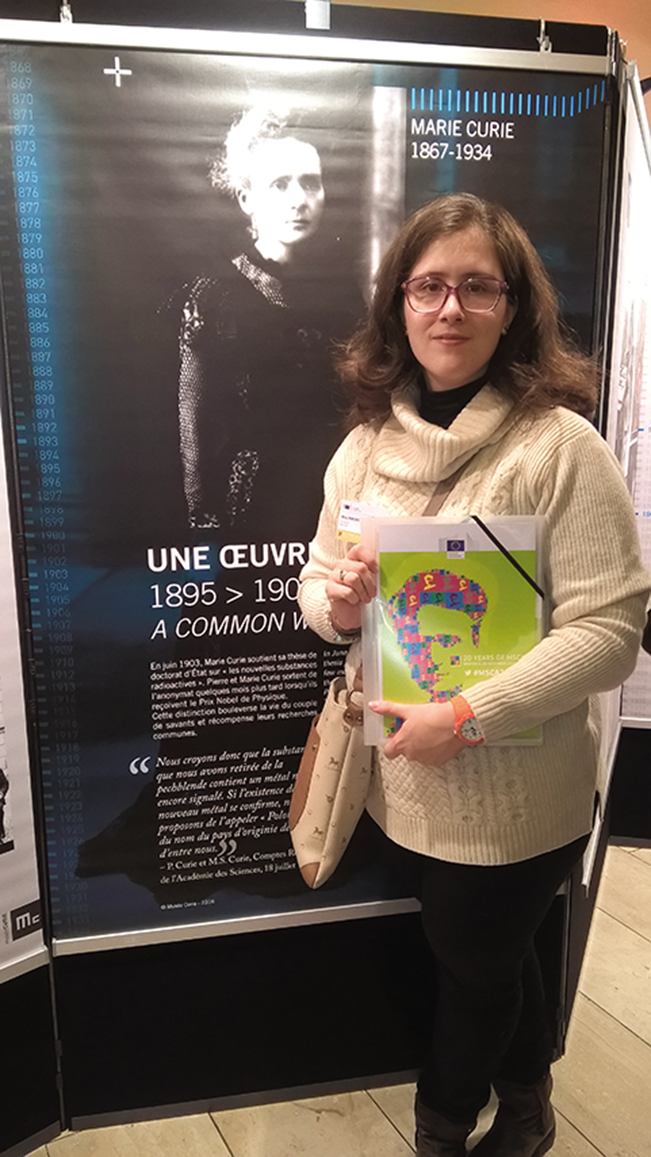
students, to attend workshops that help you develop transferable skills and broaden your career perspectives.
We are always trying to find ways to support members with administrative and financial questions by promoting events (both organised by us or by other Chapters and Working Groups) and awarding micro-grants for attendance at events such as the MCAA General Assembly and career fairs (e.g Groningen’s PhD Day).
A larger membership will also help increase the Chapter’s activity, as we are looking for volunteers to help us with the organisation of local events throughout the Benelux region.
RITA RIBEIRO
Brazil : A new Chapter at a difficult time for the country ’s universities
We are pleased to announce that the Brazil Chapter has begun work! At a time when the country’s universities are facing severe cuts, as described below, Leonardo Dall’Agnol, the Chapter Chair, is nonetheless planning to promote excellence through the Chapter’s activities.

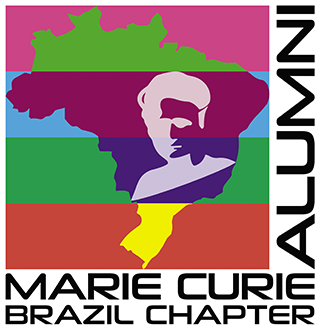
Leonardo, you’re the Chair of the Brazil Chapter. Could you tell us about the Chapter’s activities so far?
The talks for the Brazil Chapter creation started in November 2016, with the support of EURAXESS Brazil, but the formal proposal was only made in February 2017 and the official activities started in April. Until now, we have been focusing in building the basis for the Chapter’s establishment and development:
• creating material for outreach promotion like the LinkedIn webpage;
• preparing a regular newsletter for sharing members’ activities and profiles;
• actively contacting MCAA members or MSCA alumni who may wish to be to affiliated to the Chapter;
• participating in events like the ‘2017 FAUBAI – New Trends in the Internationalization of Higher
Education: Social Commitment and Innovation’;
• organising the MCAA Brazil-Europe Workshop (or as we call it, BREUW).
What are your objectives for the Chapter?
The board’s proposed 2017-2018 objectives are to:
• raise awareness of the MCAA and the Brazil chapter by recruiting and attracting new members;
• encourage networking and synergies among MCAA members through meetings, digital/social media, etc;
• promote greater knowledge of the European education and research system in Brazil, with a special focus on the Marie Skłowodoska Curie Actions;
• establish an interface between industry/business federations and the NGOs to raise awareness of the MSCA programme;
• encourage interaction with external partners and funding agencies.
Could you tell us about the 27-29 September workshop ‘Brazil-Europe’. Why are such initiatives valuable?
The ‘1st MCAA Brazil-Europe Workshop: Building a sustainable future based on cooperative science, technology and Education’, will be held from 27 to 29 September at the Universidade Federal do
Maranhão in São Luís-MA, Brazil. It is the result of a partnership between the MCAA Brazil Chapter, EURAXESS Brazil and UFMA, and is supported by the Foundation for Research and Scientific and Technological Development of Maranhão (FAPEMA). The 1st MCAA BREUW on research collaboration will bring together researchers, policy-makers, and students from several Brazilian and European institutions, universities, and companies for three days of networking and discussions.
The importance of such initiatives for the MCAA Brazil chapter is that it covers all proposed objectives in one single activity. In addition, considering that Brazil is a country of continental proportions, as well as the economic, social and scientific development disparities that exist among its five regions, it is emblematic that the first edition of BREUW is being carried out outside the Rio-São Paulo axis, where more than 60% of Brazilian science is concentrated. Our idea is to make it a permanent event in the Chapter’s calendar, held in parallel to the board meeting. The location would change every year to increase opportunities for awareness-raising and networking.
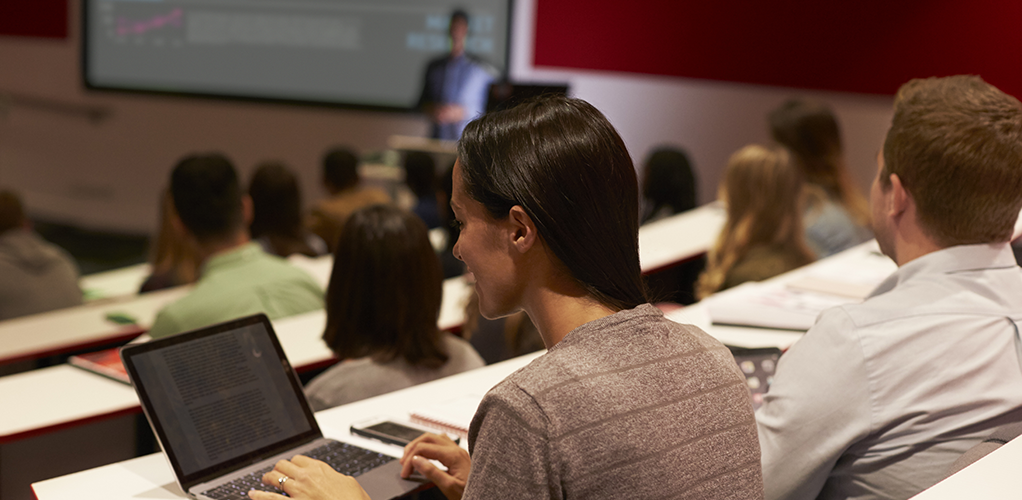
You posted a poll on the MCAA website on how best to overcome the Brazilian universities crisis? Could you give us some background?
The objective of the poll was to get a discussion going and debate ideas on the subject. To begin with, it is important to make it clear that
free and public education in Brazil is a right guaranteed by the constitution and that all government-related universities, whether at the federal or state level, are free for undergraduate and postgraduate studies (stricto sensu). It is well known that Brazil is experiencing one of its worst economic (and political) crises of the last 20 or 30 years. In this context, Brazilian education and science have been severely affected by budget cuts at both the federal and state levels, as widely reported in various national and international media (see 1, 2, 3, in English and 4, 5, 6, 7, 8 in Portuguese).
For many federal universities, the already low budget has been in-part withheld – by 25% for current expenses and 55% for capital expenditures. This has led to reduced or cancelled outsourced services such as cleaning and security, interruptions to expansions and building construction and the cutting of scholarships, grants and student assistance programmes. Many are already having to delay the payment of suppliers and service providers. In some more dramatic cases, such as the State University of the State of Rio de Janeiro (UERJ), staff salaries have not been paid for four months and the school year was cut short due to poor working conditions. In the face of this budget crisis, the National Association of
Directors of Federal Institutions of Higher Education (ANDIFES) issued a statement explaining the impact on federal higher education institutions and their consequences for the future of the country.
At the federal level, the Ministry of Science, Technology and Innovation (MCTI) was merged with the Ministry of Communication last year (creating the MCTIC), but rather than increasing, the budget was reduced, as had been happening since 2013. This year, in addition to being one of the lowest budgets since 2001, science was only allocated 44 % of the budget foreseen for 2017, meaning that 90 000 science undergraduate, masters, doctoral and postdoctoral fellowships paid by the National Council of Scientific and Technological Development (CNPq) may not be paid from October onwards.
In addition to an overall reduction of the science budget by 40 recent years, an amendment to the constitution was approved in 2016, stating that the federal budget cannot increase above inflation level for the next 20 years. This at a time when Brazil is only investing around 1.3% of its GDP in R&D, which contrasts with developed countries such as OECD members.
In view of the above situation, a campaign was created – supported by the Brazilian Society for the Progress of Science (SBPC) among other associations – called ‘Knowledge without Cuts’ (Conhecimento sem Cortes in Portuguese). It aims to "monitor and denounce budget cuts and their negative consequences for Brazilian society, in addition to sensitising the population to what is produced in universities and research institutes".
Finally, it is important to note that these budget cuts follow a significant expansion of the federal university system and in both teaching staff and researchers. If we return to the budget of the beginning of the 21st century, while simultaneously doubling the number of researchers, the situation becomes dramatic. The issue of brain drain is once again becoming a real threat, and would have disastrous consequences for the country’s future.
In these difficult times, what would you like to say to those considering joining the Brazil Chapter?
I would like to emphasise to them that science is a collaborative endeavour and that networking is essential for an academic career. Also, I would like to say that they will find a friendly environment in the Chapter and a group of researchers committed to promoting excellence in science and bringing it closer to society.
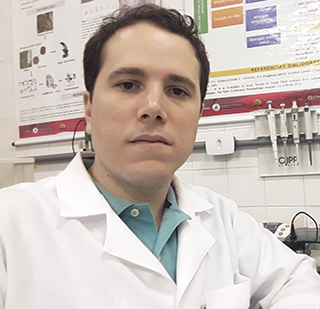
LEONARDO DALL'AGNOL
From Beijing to Hong-Kong: A new China Chapter
The sheer size of China makes creating a China Chapter quite challenging! Chengjun Yu tackled the challenge was not daunted though, and is now the Chair of the brand new Chapter.


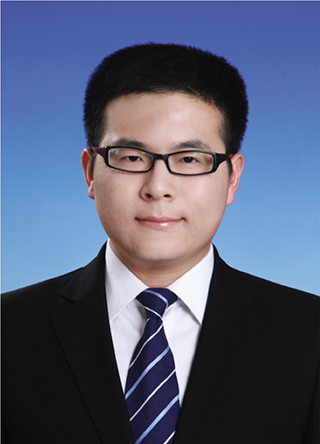
Yu, the China Chapter was officially established in July 2017. What are its objectives?
The China Chapter is an official part of the MCAA. It encourages local networking, attracts and recruits new members to the MCAA, and generally enhances the image of the MCAA within the ‘Greater China’ region, including mainland China, Hong Kong, Macau and Taiwan.
All MCAA members residing in this area, or having the status of national, can become a member of the China Chapter.
The mission of the MCAA China Chapter is to serve the interests of Marie Curie Alumni from the Greater China region, by providing a forum for
networking, communication and collaboration. It also publicises Marie Skłodowska-Curie Actions as a European programme of research excellence in the region.
A series of meetings took place in different cities in August. What can you tell us about them?
As a newly established Chapter, the first focus of the MCAA China Chapter is to attract and unite more Marie Curie Fellows in Greater China, and that’s the reason behind the series of meetings, since China is a big country and it was not easy to invite all Marie Curie Fellows to attend kick-off events in a single city on the same day. So I met with different researchers in Beijing, Jinan, Shenzhen and Hong Kong to either encourage them to join the MCAA China Chapter or encourage them to apply for Marie Skłodowska-Curie Fellowship. So far, the official MCAA China Chapter has increased its members to 35. Also, during my stay in Beijing, I visited Mr Halldor Berg of EURAXESS in China to discuss our cooperation plan, and it’s possible we’ll co-organise Marie Curie Individual Fellowship Application Beijing Meeting.
What would you like to those considering joining the China Chapter?
By joining China Chapter, you’ll be part of a Marie Curie Fellows network in the Greater China Region, and it’s a great platform to expand your academic networking with EU officials in China and the Chinese researcher community. At the same time, the MCAA and China Chapter will financially support its members’ research, travel and networking. And MCAA membership is totally free.
What’s next for the China Chapter?
Aside from the potential application-writing event with EURAXESS, there is also Researchers’ Night Beijing in September, and European Research Day in Beijing in October.
In September, there will be a Chapter’ online session to summarise the China Chapter’s performance in 2017, and to draft the event and budget plan for next year to better serve our members’ needs. I’ll also join the MCAA Board Meeting in Porto on 18 September to learn more about managing a Chapter.
We would definitely welcome more members joining the China Chapter.
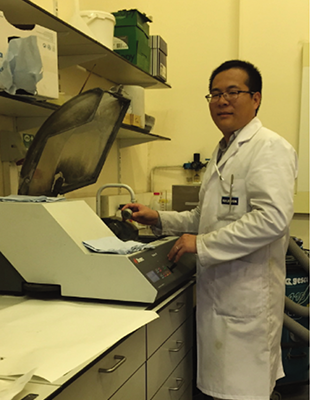
CHENGJUM YU







